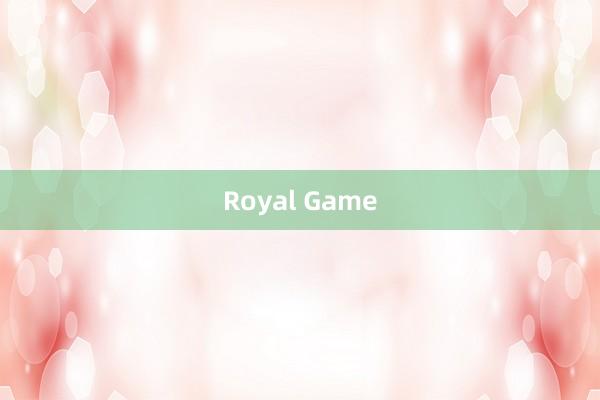Cập Nhật:2024-12-20 14:49 Lượt Xem:88

Royal Game: A Timeless Tradition of Skill and Strategy

For centuries, games have captivated the human imagination, offering amusement, challenges, and an opportunity to showcase mental and physical prowess. Among the many that have stood the test of time, the notion of a "Royal Game" carries with it a storied past, reflecting strategy, prestige, and, often, the complex interplay of power and tradition. But what exactly makes a game “royal,” and why do such games continue to fascinate generations around the globe?
Throughout history, the term “royal” has been associated with games patronized by nobility or those played in the courts of kings and queens. The connection was often as much about spectacle and symbolism as it was about leisure and mastery. Chess is perhaps the quintessential example of a royal game. With origins tracing back to the 6th century, it evolved from the Indian game Chaturanga and spread across Persia, reaching Europe during the Middle Ages. Chess became a game of strategy that reflected the tactical battles of kings, queens, knights, and castles, captivating both royals and commoners alike.
Another example can be found in ancient Chinese culture with Xiangqi, commonly known as Chinese chess. This game similarly enjoyed great prestige in royal courts, where military strategy and critical thinking were highly esteemed.
One key characteristic that sets royal games apart is their emphasis on strategy. Unlike games that rely on chance or luck, royal games demand mental acuity, 777taya win app planning, game 789club and deep understanding of rules and tactics. These games not only provide entertainment but also serve as training grounds for decision-making,chichh patience, and foresight.
Consider Go, a board game that originated in China over 2,500 years ago. Though simple in its design, Go presents intricate layers of strategic depth. Played by emperors and scholars alike, the game's complexity transcends its surface simplicity, making it a fitting pastime for royalty and a metaphor for life’s strategic battles.
tải go88The concept of royal games is not restricted to one culture or region. Across the globe, similar traditions have emerged, reflecting the cultural values and historical contexts of the societies that nurtured them. In India, Pachisi, also known as the “game of kings,” was played on life-sized boards by emperors. In medieval England, the aristocracy enjoyed elaborate tournaments of jousting—a game of martial skill and bravery that combined spectacle and genuine risk.
Some games, such as backgammon, have endured centuries of change while maintaining their appeal among both the elite and ordinary citizens. This board game, with origins dating back thousands of years, was known to have been popular among Roman emperors. Its mix of chance and strategy, rolled dice, and calculated moves, exemplified the fine balance of skill and fortune—a reminder of life's unpredictability.
Why do these games continue to captivate people even in the digital age? One reason is their timeless appeal and adaptability. While today’s world offers countless forms of entertainment and pastimes, royal games retain a unique allure through their emphasis on mastery, human connection, and tradition. They bring generations together, offering a bridge from the past to the present, with families often passing down strategies, stories, and memories from one player to the next.
Moreover, royal games often serve as windows into the cultures from which they emerged. They reflect values, customs, and social hierarchies, giving players a tangible link to history while presenting challenges that feel fresh and relevant even today. The growth of chess tournaments and online Go competitions, for instance, highlights how such traditions can adapt and thrive in modern settings.
Royal games represent more than simple pastimes. They embody a blend of tradition, skill, and human ingenuity that transcends generations. Whether played in the court of a king or the quiet of a family home, these games challenge minds, teach patience, and reward strategic thinking. As we continue to engage with these games in new forms, we honor a timeless legacy that celebrates both competition and culture—a true testament to the enduring appeal of the “Royal Game.”